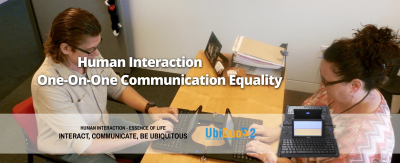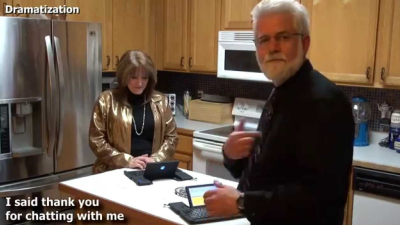| Last Update: May 4, 2017 |
|
|
Age: (Year Unknown) Profession: First UbiDuo Inventor Birthplace: (Birthplace Unknown) Location: Rayton, Missouri
As some of you might not know, I was born profoundly deaf and I have learned something new. I have met with many people all over the country, and one thing I hear over and over is that both people who are deaf and hearing complain that their communication rights are denied. That’s right– I said hearing people complain about their communications rights as well! In one case, the federal government had a UbiDuo available for an employee who is deaf, but that employee refused to use it and instead prefers an interpreter. The interpreter is only available once a week for one hour for that deaf employee. What about the other 39 hours in the week where the hearing co-workers and managers want to communicate with that deaf employee? That person doesn’t understand that they are putting the work of everyone else in the office on hold for 39 hours. By doing that, the employee who is deaf is also taking away the hearing employees’rights to communicate.
References + Suggested Readings
www.scomm.com  Why do I bring this issue up? Because in the deaf and hard of hearing world, it has always been about our rights wherever we go, but sometimes we forget that hearing people have the right to communicate with us. I’m not saying people who are hard of hearing or deaf should stop using interpreters. It’s ok to prefer an interpreter, if that’s what you’re used to. But if it will be literally days before an interpreter is available for you to communicate with a hearing co-worker, waiting is ne ither practical nor productive. References + Suggested Readings
www.scomm.com  If a person who is deaf or hard of hearing refuses to use the UbiDuo because they prefer an interpreter, then they are holding up the interaction. If the hearing person is willing to communicate on the UbiDuo and the deaf person is not willing, then the hearing person’s right to communicate is also being denied. To ensure that the rights of deaf, hard of hearing, and hearing users are being met, everyone has to be willing to use the UbiDuo to communicate. References + Suggested Readings
www.scomm.com |
|